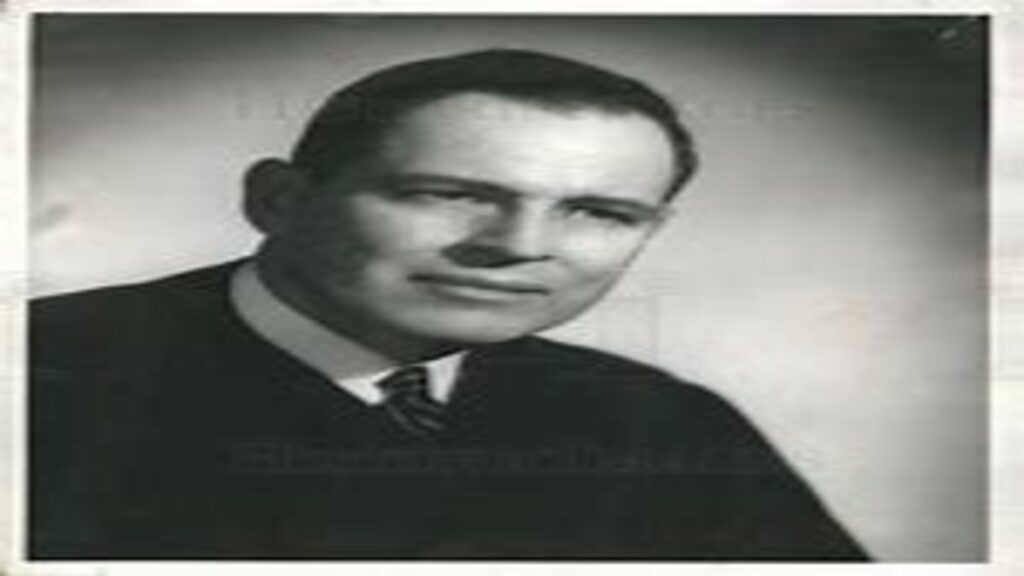Introduction
In the world of American jurisprudence, few names evoke as much respect as Horace Weldon Gilmore. A federal judge known for his fairness, sharp intellect, and unwavering commitment to the Constitution, Gilmore’s career carved out a unique chapter in legal history. But beyond the courtroom, he was a mentor, a teacher, and a man deeply committed to the ideals of justice and equality.
Early Life and Education
Horace Gilmore was born on March 4, 1918, in Kalamazoo, Michigan. Raised in a middle-class family during the turbulent interwar period, Gilmore quickly stood out for his academic curiosity and strong moral compass.
He earned his undergraduate degree from the University of Michigan in 1940 and later returned there for law school, graduating in 1943. It was clear from early on that Gilmore had a passion for public service and the law.
Legal Career Begins
Before ascending to the bench, Gilmore began his legal career in private practice. He worked as an assistant prosecuting attorney in Wayne County, Michigan, gaining hands-on experience in criminal law.
His dedication and performance in the role earned him a solid reputation as a no-nonsense attorney who approached every case with objectivity and a deep understanding of the law.
Federal Service and Notable Cases
In 1961, Gilmore’s career took a pivotal turn when he was appointed United States Attorney for the Eastern District of Michigan. This position placed him at the helm of some of the most significant prosecutions in the state during a politically and socially volatile time in American history.
From organized crime to white-collar offenses, Gilmore’s tenure as a U.S. Attorney was marked by integrity, fairness, and a deep-rooted commitment to justice.
Nomination to Federal Bench
In 1980, President Jimmy Carter nominated Horace Gilmore to the United States District Court for the Eastern District of Michigan. His nomination was widely supported by both sides of the aisle, a testament to his unimpeachable credentials and ethical standing.
He was confirmed swiftly by the Senate and began serving as a federal judge, a role he would hold with distinction for over two decades.
Judicial Philosophy
Judge Gilmore was a firm believer in judicial restraint and the importance of interpreting the Constitution as a living document. While he never shied away from bold decisions when needed, he often emphasized the importance of precedent and careful legal analysis.
His decisions reflected a deep respect for both the rights of individuals and the role of government.
Noteworthy Rulings
Among his most remembered cases were those involving civil rights, environmental law, and public corruption. He brought clarity and moral authority to complex cases, often breaking down legal issues in a way that the public could understand.
Impact on Civil Rights
Gilmore’s time on the bench coincided with major shifts in civil rights law. His rulings often favored the protection of marginalized communities and reinforced the principles of equal protection and due process.
He was a staunch supporter of anti-discrimination laws, frequently referencing constitutional principles in his opinions.
Conclusion
Horace Gilmore may not be a household name, but his legacy in the American legal system is both deep and lasting. His rulings shaped the course of law, his teachings inspired future legal minds, and his character left a mark on all who knew him. In an era when trust in institutions can sometimes waver, the life of Judge Horace Gilmore stands as a beacon of what justice truly means.
FAQs
1. Who was Horace Gilmore?
Horace Gilmore was a U.S. federal judge and former U.S. Attorney for the Eastern District of Michigan known for his fair judgments and contributions to civil rights law.
2. What was Horace Gilmore known for?
He was known for his judicial integrity, landmark rulings, and dedication to justice during his time on the federal bench.
3. When did Horace Gilmore serve as a federal judge?
He served from 1980 to 1991 as an active judge and continued as a senior judge until his death in 2010.
4. What made Horace Gilmore’s rulings unique?
His rulings were notable for their clarity, legal rigor, and compassionate application of constitutional principles.
5. How is Horace Gilmore remembered today?
Gilmore is remembered as a principled judge, mentor, and public servant who left a lasting legacy in American jurisprudence.







